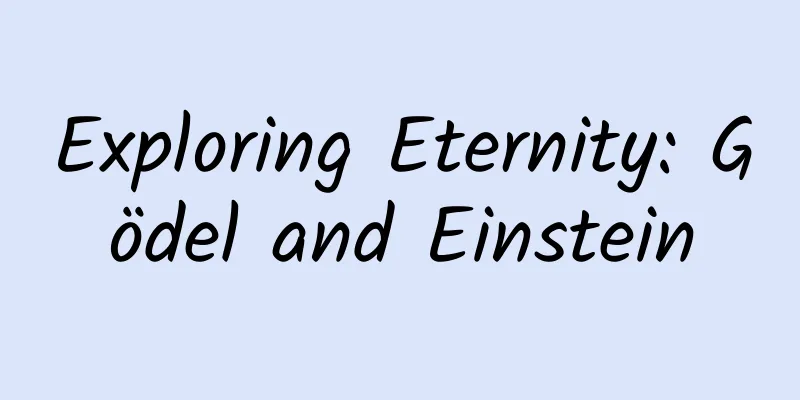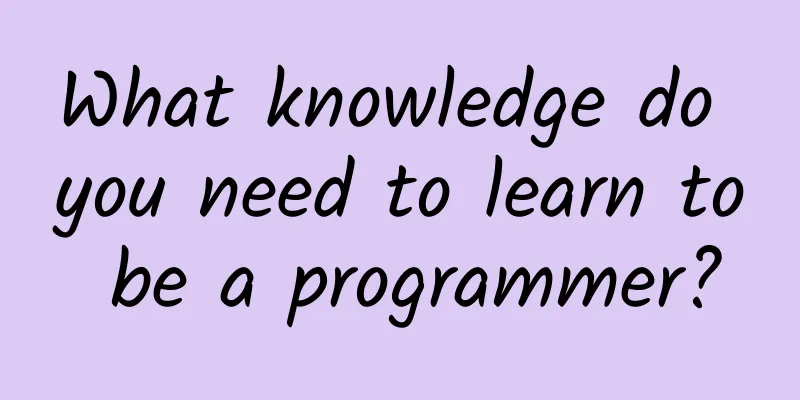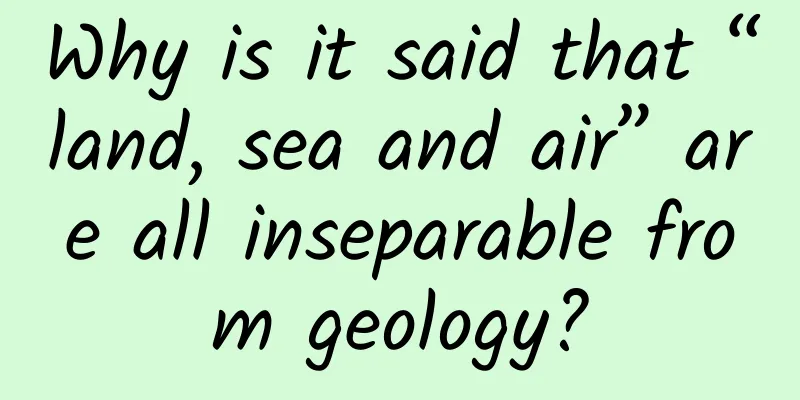Exploring Eternity: Gödel and Einstein

|
Einstein has many intriguing quotes, such as he said that he worked at the Institute for Advanced Study in Princeton in his later years "just to have the honor of walking home with Gödel". The two great scholars strolling on the small road in Princeton is a unique and lonely scenery. What are they talking about? The famous mathematician Wang Hao had a lot of exchanges with Gödel, and obtained many private letters from Gödel to his mother about Einstein, which allowed him to understand the relationship between the two. They have great contrasts in personality and academic paths, but they have become confidants in exploring profound and eternal fundamental issues. Such thinking may be against the spirit of the times, but it is also the most precious and valuable. Written by | Wang Hao Translation | Yan Zhaoxu Proofreading | Roach Gödel and Einstein From about 1942 to April 1955, Albert Einstein (1879-1955) and Kurt Gödel (1906-1978) often walked and talked together, a common sight near the Institute for Advanced Study in Princeton, New Jersey. Their close friendship was occasionally noted by others, but it was largely a private matter. What they talked about was undoubtedly mostly for their own amusement, and almost no records were left. According to Ernst G. Straus, who was close to both of them in the 1940s, "The great logician Gödel was undoubtedly the only particularly close friend to Einstein in his last years, and the person who was most similar to him in some respects. But in terms of personality, they were completely opposites - Einstein was sociable, cheerful, always smiling, and sensible; Gödel was extremely old-fashioned, serious, quite lonely, and believed that common sense could not be relied upon in the search for truth." [1] They are the great "philosopher-scientists," an extremely rare breed. Due to the tendency towards high specialization, fierce competition, the mentality of quick success and instant benefits, the loss of trust in reason, the interference of worldly concerns, and the hostility to lofty ideals, this kind of people seems to be on the verge of extinction. Most of their values are considered outdated, or at least no longer completely practical. If they are respected, it is only as nostalgia for an era that has ended; otherwise they are regarded as lucky but mysterious eccentrics. Their lives and works can make people make almost boring speculations: if they were still young, what kind of work would they do? What cultural, social and historical conditions (including academic progress) would produce intelligence and achievements like theirs? It is natural to be interested in the lives and work of men like them, so much has been written about Einstein, and it is likely that much will be written about Gödel as well. Their rare devotion to what we call "eternal truth" has made us more aware of the value of the intellect and the instinct of reasoning; and for those who are mostly busy for the sake of busyness, thinking about the life goals of these two great men can be a remedy, a breath of fresh air, and even point out a broader world for their lives and work. In any case, I came upon the subject of Einstein and Gödel only by accident, and thought about them only in the light of my own views. During the last years of Gödel's life, I discussed philosophical problems with him on many occasions, partly with the common goal of spreading his ideas. The part of our initial discussion, which Gödel approved, is recorded in my book From Mathematics to Philosophy [2]. Three years after his death (January 1978), I finally got the energy to sort out the main parts of the discussion from scattered notes, and gradually I wrote a whole book - which ended up being divided into two books [3] . In the process of writing the book, I became interested in comparing Gödel and Einstein, and found a lot of references to Einstein in Gödel's letters to his mother, which gave me further insights into their relationship. This present article is a synthesis of the relevant accounts and comments in the scattered book. Kurt Gödel was born, raised, and attended high school in Brünn, Moravia, where Gregor Mendel, the founder of genetics, worked. From 1924 to 1939, Gödel conducted research in Vienna and made fundamental discoveries. From 1933 he was a research visitor in Princeton, and in the spring of 1940 he and his wife moved to Princeton to work, and never left. Gödel's 1929 doctoral thesis proved that propositions that are "true in all possible worlds" can be deduced, so that in this sense the existing laws of elementary logic (which he called "the logic of finite ideas") are "complete." His most famous paper in 1931 [4] proved in an extremely clear way that mathematics is "inexhaustible" in any formal system or computer program. Once such a system and its verification methods are established, we can always construct propositions that are intuitively true but cannot be deduced in this system. In particular, the statement that the system has consistency (assuming it is true) is expressible but not provable. These results frustrated David Hilbert's vision of building a system that is significant and complete (or at least intuitively obvious to have consistency). Gödel's research not only pointed out a new direction for the effort to prove that the mind is superior to the machine, but also became the main driving force and tool for the development of computers and the pure theory of "computability". After being supplemented by the theories and methods of A. M. Turing, this theory has been developed in many ways, establishing a conceptual framework for the study of computers and their applications. By the 1930s, Gödel's attention shifted to the richer and more chaotic field of set theory, which gave him a wider space to expand his horizons. From 1943 onwards, his attention turned more directly to philosophy. In the late 1940s, he discovered a new solution to Einstein's equations, thus proving the possibility of "time travel" and showing the strong difference between subjective and objective concepts of time. In addition, he studied Leibniz and Husserl seriously, published several basic papers on the philosophy of mathematics, and accumulated a large number of unpublished manuscripts. These materials are definitely enough for scholars to study for many years. Both Einstein and Gödel grew up and did their best work in Central Europe, both speaking German as their mother tongue. In the "miracle" year of 1905, 26-year-old Einstein published three papers on (special) relativity, quantum theory of light, and Brownian motion; Gödel had completed his theory of logical completeness and mathematical inexhaustibility before the same age. Einstein then further developed general relativity, while Gödel turned to set theory, proposing the idea of "ordered subuniverses" of "sets" (referring to constructible sets), thereby proving the consistency of the continuum hypothesis, which was also the most effective step so far in establishing order in the chaotic field of "arbitrary sets". (As for the work on Einstein's equations, it was just an episode and by-product of his research on the philosophical problem of time and change.) In the last few decades of their lives, they both focused on work that was generally considered unfashionable, namely Einstein's unified field theory and Gödel's "old-fashioned" philosophy. In them radical contributions to science, serious philosophizing, and independence of spirit have combined to a degree rarely, perhaps only, achieved in this century. Their intellectual excellence recalls the seventeenth century, sometimes called the "century of genius," when Cervantes, Bacon, Kepler, Harvey, Galileo, Hobbes, Descartes, Pascal, Huygens, Newton, Locke, Spinoza, and Leibniz appeared. If we compare Einstein and Gödel, why not extend the familiar pairing of Einstein and Newton by analogy? The problem is to find an x that makes Einstein's relationship to Gödel similar to Newton's relationship to x. Obviously, Descartes and Leibniz are both the first choices for x. Gödel admired Leibniz: both of them were great logicians, and Gödel thought that Leibniz's "monad" theory (monadology) was close to his own philosophy. On the other hand, his thoroughness and certainty in mathematical discoveries were closer to Descartes' invention of analytic geometry; and his preference for Husserl seemed closer to Descartes's fascination with new ways of thinking and the birth of new philosophies. Another candidate might be Pascal, who, like Gödel, often went against the spirit of the times. In a letter to his mother in 1953, Gödel responded to her question about the burden of fame. He said: "So far I have not felt any burden of fame. That only happens when one is as famous as Einstein, and even the children on the street know him. Then there will be crazy people who come from time to time to explain their weird ideas or complain about the world situation. But, as you know, this is not a big problem, after all, Einstein lived to the age of 74." Gödel's mother, Marianne (1879-1966), was born in the same year as Einstein. She was very excited to hear in 1946 that her son was on good terms with Einstein, and Einstein became one of the main topics in their correspondence over the next ten years.[5] She was an extremely lively, well-educated, and independent-minded person; she was good at socializing, had a wide circle of friends, was well-read, and enjoyed music, drama, and sports. In her youth she was an athlete (especially skiing), and in her later years she traveled extensively, studied Goethe's life for many years (she owned a number of books on the Weimar Goethe Society), and by around 1900 had developed a taste for "modern" literature (especially Schnitzler and Adernberg). Marianne was a good wife, but she and her husband did not have a "love marriage"; there was only sympathy and respect between them. Her husband was a practical man who had achieved success in the textile industry. He died young when she was 49 and he was not yet 55. Marianne was very close to her child Kurt and his only brother Rudy, almost like peers. She spent more time with Rudy (including the entire period from 1944 to 1966), but she was more special to Kurt, as Rudy's account shows: "Mother and him (referring to Godel - translator's note)" were particularly close, and she often played his favorite piano music (light music) for him. "Mother often remembered many trivial things in his childhood, which in her opinion were all signs that he would become a world-renowned scholar; for example, since the age of 4, he had been nicknamed "Mr. Why" among his acquaintances because he always stubbornly asked the root of everything. "After the war, Kurt was reluctant to return to Europe, so Marianne visited him in Princeton many times in the last 10 years of his life, accompanied by Rudy. "These trips to the United States were always like festivals for her. In 1966, Marianne was too ill to be with Kurt in Princeton for his 60th birthday (April 28), and was disappointed. After Gödel's death in 1978, his reputation spread even further. The unexpectedly popular book Gödel, Escher, Bach by D. Hofstadter[6] was published in 1979, and many conferences on his life and work were held. The first volume of his complete works was published, and other volumes are about to be published. At the same time, the Gödel Research Society was established in Vienna. Undoubtedly, the increasing attention paid to him and his work is inseparable from the popularization and widespread use of computers. For example, a seminar in his memory was promoted with the title "Digital Intelligence: From Philosophy to Technology". Gödel's work may be more closely related to computers than Einstein's work was to the atomic bomb. In a letter to his mother in 1950, Gödel said: "It is wrong to think that Einstein's discoveries only led to the atomic bomb. Of course he contributed indirectly to it, but the essence of his work lies in a completely different direction." I think Gödel's words are also applicable to the relationship between his own research and computers. By "completely different directions" I meant fundamental theory, the central goal of Gödel's and Einstein's lives. Their common devotion to this field, their great achievements (different but mutually admired), their determination to penetrate the mysteries of nature - this combination of factors was undoubtedly a firm basis for their friendship and frequent contacts. They felt not only intellectual affinity, but also a common cultural tradition. By a happy coincidence, from 1933 they both joined the same "club", the "Institute for Advanced Study". It is difficult to find examples in history of such a close relationship between two outstanding philosopher-scientists. The friendship between Newton and Locke, Leibniz and Huygens was far less close; Faraday and Maxwell respected each other but had little personal contact. Among other types of scholars, there are indeed some famous examples, such as Goethe and Schiller, Hegel and Hölderlin, Marx and Engels, etc. Gödel was not generally willing to take the initiative to make contact with others. It was known that he was only happy with a few people, especially when he was in Princeton. There were undoubtedly many people who wanted to get close to him, but few had the confidence and opportunity to discover real common interests and maintain long-term discussions or other forms of close contact. In Einstein's case, there was no confidence problem, and there were many opportunities. Moreover, based on a wealth of common knowledge, both of them had done extremely deep and keen thinking about science and philosophy. It is obvious that they were very happy to get along with each other and talk. Such a relationship can undoubtedly be regarded as the most precious experience in life. Oskar Morgenstern, who was familiar with Gödel and also knew Einstein (probably introduced by Gödel), wrote to the Austrian government in late 1965, suggesting that Gödel be honored on his 60th birthday. He said: "Einstein told me many times that in his later years he often met with Gödel to discuss problems. Once he even said that his own work no longer had much significance, and that he came to the institute only 'to have the honor of walking home with Gödel'." From the letters Gödel wrote to his mother, it is clear that he, like Einstein, cherished their time together. I think this close friendship shows a fascinating side of the value of life, which may be used to verify ethical theories such as James Mill's "preference principle" that judge the level of happiness. What they both pursued was not practical results, nor even the expression of their true feelings, but "useless use" based on "impartial love". From a vulgar perspective, what they did was indeed useless. However, their genuine joy clearly demonstrated a value that we can often only vaguely glimpse or at most limitedly experience. Perhaps this basic value should be called pure free exploration for its own sake (which is usually a very lonely thing)? Undoubtedly, their academic achievements are closely related to their dedication to this value. But as Gödel said about his philosophical achievements[7], false dedication is certainly not as effective as real dedication. The author of this article, Wang Hao (right), and Gödel After Einstein's death, Gödel once answered Carl Seelig's question by saying that his conversations with Einstein covered philosophy, physics, and politics, and often touched on Einstein's unified field theory, even though (or precisely because) Einstein knew that Gödel was skeptical and opposed his theory. But I am convinced that there is an assumption behind this statement, that is, their tastes in the value and importance of problems and ideas are basically the same. They have similar profound knowledge, consistent judgments on the distinction between "knowing" and "unknown", and both have extremely high abilities to express themselves clearly. Now I will mention their similarities and differences to contrast their views[8]. Einstein and Gödel were concerned primarily (and in later years exclusively) with fundamental problems. For example, Einstein often explained[9] that he had chosen physics over mathematics in part because he felt that there were too many different branches of mathematics, whereas in physics he could distinguish which problems were important. But he once said to Strauss: "Having met Gödel, I now know that the same is true of mathematics." In other words, Einstein was interested in the most fundamental problems in the whole field of mathematics or physics, but at first he could only identify these fundamental problems within the field of physics. Gödel once said to me, almost apologetically (perhaps to explain why he thought that what he had done in his last few decades was largely unsuccessful), that he was always pursuing the most fundamental things. Contrary to the mainstream of the physics community, neither Einstein nor Gödel believed that quantum theory was tenable in the long run. Einstein seemed to be seeking a complete theory in which quantum theory was merely an ensemble description derived from "fundamental principles". Gödel believed that the current "two-layer" theory of physics (i.e., the quantization of "classical systems" and the associated divergent series[10] ) was widely acknowledged to be extremely unsatisfactory [11]. In his letters to his mother, Gödel often explained Einstein's attitude in a sympathetic tone. For example, one article called Einstein's theory "the key to understanding the universe." In 1950, he commented that such sensational reports were "very contrary to Einstein's own wishes." He also said: "(In my opinion) even if his ideas do lead to results that can be described in this way in the future, it would be wrong to report the progress of his current work in this way. At present, everything is uncertain and unfinished." I think Einstein himself would agree with this view. Such points of agreement between them betray a common view contrary to popular opinion or the "spirit of the times," and that is why they sympathize with each other. Their differences are therefore secondary; indeed, as in so many other respects, their opposition of views can usually be regarded as an offshoot of a common attitude. For example, they both valued philosophy, but had different views on its nature and function; they were both peace-loving and cosmopolitan, but unlike Einstein, Gödel did not get involved in public activities; they both sympathized with socialist ideals, but Gödel was skeptical of the path that was generally believed to be taken to achieve these ideals, in contrast to Einstein's half-measured views in his 1949 article "Why Socialism?" In a sense, both were religious, but Einstein said he accepted Spinoza's pantheism, while Gödel called himself a monotheist following Leibniz. (In 1951 Gödel said that Einstein "was undoubtedly religious in a certain sense, but not in the sense of attending church.") They both read the works of Immanuel Kant in school and had a strong interest in philosophy when they were young. Later, Einstein could not stand the ambiguity or arbitrariness of philosophy and gave it up, but Gödel continued to devote a lot of energy to philosophical research and strived to pursue "philosophy that becomes a rigorous science." Einstein believed that "epistemology without science will only become an empty framework, and science without epistemology - if this is conceivable - is primitive and confusing." [12] In contrast, Gödel was not very interested in epistemology. He believed that the right way to study philosophy was to understand oneself. For Gödel, science is just the use of concepts, while philosophy analyzes our primitive concepts based on daily experience. In the 1950s, like most intellectuals of the time, Einstein supported Stevenson over Eisenhower, but Gödel strongly supported Eisenhower (on the other hand, Gödel was a great admirer of Franklin D. Roosevelt, and in this respect he was closer to his colleagues). Einstein's love of classical music is well known, but Gödel was bored by it. (In December 1955, he attended a concert in memory of Einstein and later said, "This is the first time I have been entangled in Bach, Haydn, etc. for two hours.") On the other hand, Gödel is said to have a love of modern abstract art, which Einstein probably did not share. Einstein was married twice, had two sons and two stepdaughters, and was a widower for almost 20 years; Gödel married only once, when he was older, had no children, and died before his wife. In his letters to his mother, Gödel often mentioned: "I see Einstein almost every day." He also often spoke of Einstein's health in optimistic terms. The letters also include explanations of Einstein's public activities and comments on books and articles about Einstein, as well as records of the gifts they exchanged on Einstein's 70th birthday in 1949 and Gödel's housewarming. In the summer of 1947, Gödel wrote to his mother that Einstein was recuperating, saying: "So I feel quite lonely now and rarely talk to anyone else in private." In January 1955, he said again: "I am not as lonely as you think. I often visit Einstein, Morgenstern, and others also come to visit." Einstein died on April 18, 1955. A week later, Gödel wrote that Einstein's death had naturally been a heavy blow to him, because it was totally unexpected. Naturally, his health had deteriorated in the past week, and he had been particularly restless. Two months later, he said: "I am now in good health, and I have certainly regained my energy in the past two months." After Einstein's death, people published a memorial picture to commemorate this great man. (Editor's note: created by the famous American cartoonist Herb Block.) In terms of the trade-off between participating in history (rather than watching it) and understanding the world, both Einstein and Gödel focused primarily on understanding, and thus made decisive contributions to their respective disciplines. But unlike Gödel, who also participated in history in other ways and was a highly visible public figure, Einstein kept a greater distance from the "spirit of the times." He not only speculated on some enduring questions that would interest ordinary people but would scare most experts away, but also offered fresh insights. For example[13]: Can the mind be superior to the machine? How "exhaustive" and certain is our mathematical knowledge? How real are time and change? Is Darwin's theory sufficient to explain the origin of life and mind? Do humans have another concrete organ for processing abstract impressions? How precise can physics be? Is there an afterlife? I believe that Einstein did not pay much attention to these questions. While Einstein focused his life on physics, Gödel's interest shifted from theoretical physics to mathematics and then to logic; after achieving great success in logic, he immersed himself in a number of philosophical problems. Although Einstein also failed to complete his unified field theory, Gödel repeatedly embarked on new journeys and explored several important fields at the same time, but failed to complete these works. It can be said that Gödel did not plan his life as well as Einstein, and Einstein had a clearer view of what was feasible. But then again, no one can confidently predict what fruits their unfinished work will bear in the future. Moreover, as Gödel said, even if it is not a good time to engage in philosophical work, the situation may change. Generally speaking, we always think that the main direction of the mainstream is unchanging, but in fact history is full of ups and downs and changes. Perhaps in the near future, there will be many other brilliant thinkers like Einstein and Gödel - there is no reason why this cannot happen? Notes [1] G. Holton & Y. Elkana (eds.), Albert Einstein: Historical and Cultural Perspectives. Princeton: Princeton University Press, 1982, p.422. [2] Wang Hao, From Mathematics to Philosophy. London: Routledge and Kegan Paul, 1974. [3] Wang Hao (王浩), Reflections on Kurt Gödel. Cambridge, Mass: The MIT Presss, 1987; parts of the original manuscript have been extracted and expanded into another book which is still under preparation: Conversations with Gödel. [4] That is, “On the Formal Undecidability of Propositions in Principles of Mathematics and Related Systems”, which proposed the famous “Gödel’s Incompleteness Theorem” (Translator’s note). [5] I am grateful to the Vienna City Library for its German originals of Gödel's correspondence, to which I am grateful for permission to quote. The following digression on Marianne is largely drawn from a biography of their mother written by Gödel's brother Rudolph in April 1967 and supplemented after Gödel's death in February 1978. [6] D. Hofstadter, Gödel, Escher, Bach: An Eternal Golden Braid (Harvester, 1979). This book has been translated into Chinese: GEB, An Eternal Golden Braid, translated by Le Xiucheng, Chengdu: Sichuan People's Publishing House, 1983. (Translator's note) [7] See note 2, pp. 8-11. [8] The rest of this article is a summary of the detailed account in the first book mentioned in note 2. [9] Compare PA Schilpp, ed., Albert Einstein, Philosopher—Scientist. La Salle: Open Court, 1949, p.15 and H. Woolf, ed., Some Strangeness of Proportion. Reading, Mass.: Addison-Wesley, 1980, p.485. [10] Refers to the divergent terms that arise when using quantum field theory to calculate the secondary and higher-order effects of particle interactions through perturbation methods. These terms must be processed through a renormalization process in order to produce meaningful results. (Translator's note) [11] See note 2, page 13. [12] See Schilpp, note 9, p. 684. [13] Gödel's views on some of these problems are given on pages 324, 326 and 385 of note 2. The two books in note 3 contain a detailed account of his views on all these problems. About the Author Wang Hao (1921-1995) is the most outstanding mathematical logician of our time. In the 1950s, he began to explore the new field of using electronic computers to prove logical propositions and made many pioneering contributions. Therefore, in addition to being awarded the title of academician of the National Academy of Sciences of the United Kingdom and the United States, he later won the first "Milestone Automated Theorem Proving Award" in 1983. Professor Wang was born in Jinan in 1921. He studied mathematics and philosophy at Southwest Associated University and Harvard University. From the mid-1950s, he served as a professor of mathematical philosophy and mathematical logic at Oxford University and Harvard University. From 1967, he served as a professor of logic at Rockefeller University in New York. Professor Wang has written many books. In addition to more than 100 professional papers, he also wrote six monographs, including "Collected Works on Computation, Logic and Philosophy", "From Mathematics to Philosophy" and "Beyond Analytical Philosophy". This article was originally published in "Twenty-first Century" (Institute of Chinese Culture, The Chinese University of Hong Kong), December 1990 issue; it was reprinted in "Fanpu" with permission, and some of the translated names were revised when it was published. Special Tips 1. Go to the "Featured Column" at the bottom of the menu of the "Fanpu" WeChat public account to read a series of popular science articles on different topics. 2. Fanpu provides a function to search articles by month. Follow the official account and reply with the four-digit year + month, such as "1903", to get the article index for March 2019, and so on. Copyright statement: Personal forwarding is welcome. Any form of media or organization is not allowed to reprint or excerpt without authorization. For reprint authorization, please contact the backstage of the "Fanpu" WeChat public account. |
>>: Although paid squatting is comfortable, you must be careful of irritability!
Recommend
Apple's Tim Cook: 2015 will be the year of Apple Pay
During Apple's first quarterly conference cal...
Short video planning and operation guide!
During last year's National Day, Zhang Ce and...
If you drink one less cup of coffee every day, you can drive this artificial intelligence car that can send emojis!
It can be seen that today's automobile indust...
Master Wang's concept design 3D assisted painting
Course Catalog: ├──c4d and redshift | └──c4d and ...
To create a "feeling of atmosphere", a girl was poisoned after taking oleander in her mouth! Netizens: Believe what An Lingrong said...
recently, News that "Girl was poisoned after...
The auspicious and inauspicious directions for placing the Wenchang Tower in 2020
Wenchang Tower is beneficial to a person's st...
Developing mobile 3D games based on Three.js+WebGL
one, introduction In this article, we will use We...
iOS 11 updates the sixth developer beta, and the biggest change is the App Store logo
If you are used to the Apple App Store logo - a t...
Quantum dot vs. OLED: Which screen technology is better?
Although OLED is no longer a new technology, panel...
Cochlear implants are included in Shanghai's medical insurance! A cochlear implant costs 200,000 yuan, why is it so expensive?
Since October this year, cochlear implants have b...
The latest news on the 2022 migrant worker demobilization order: Is it true that those over 60 will be demobilized? Attached are the latest notices from various places
Due to the needs of the development of the urban ...
Uncovering the technical principles of the "Star Wars" robot BB-8
This should be one of the most watched non-human ...
Why are you losing users? There are some ways to improve user retention!
In the Internet industry, we usually attract new ...
What is the use of the “blue” in Isatis root?
As a common household medicine for clearing away ...
Kuaishou account cold start tips and operation guide!
How to cold start a new short video account is a ...









